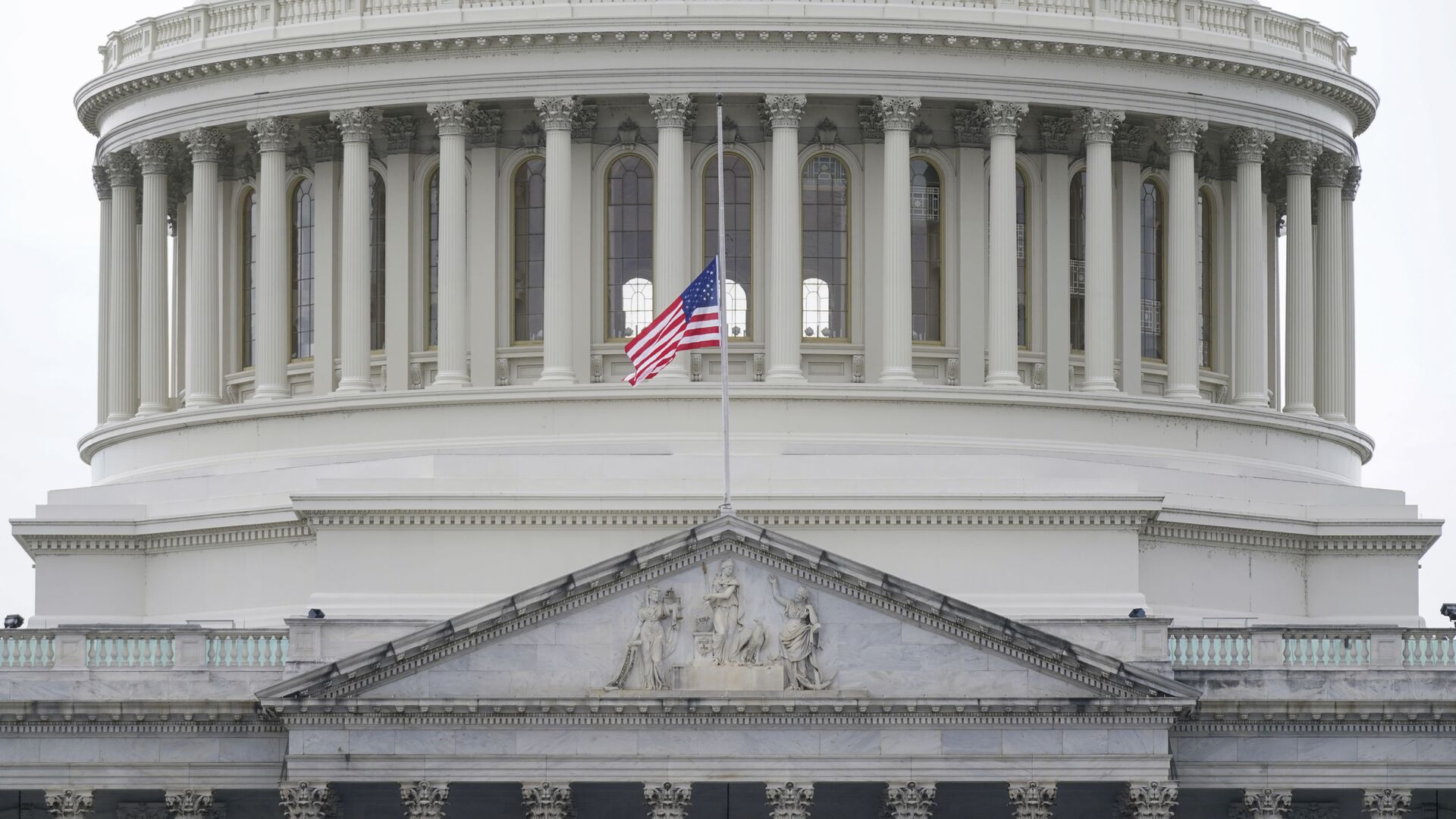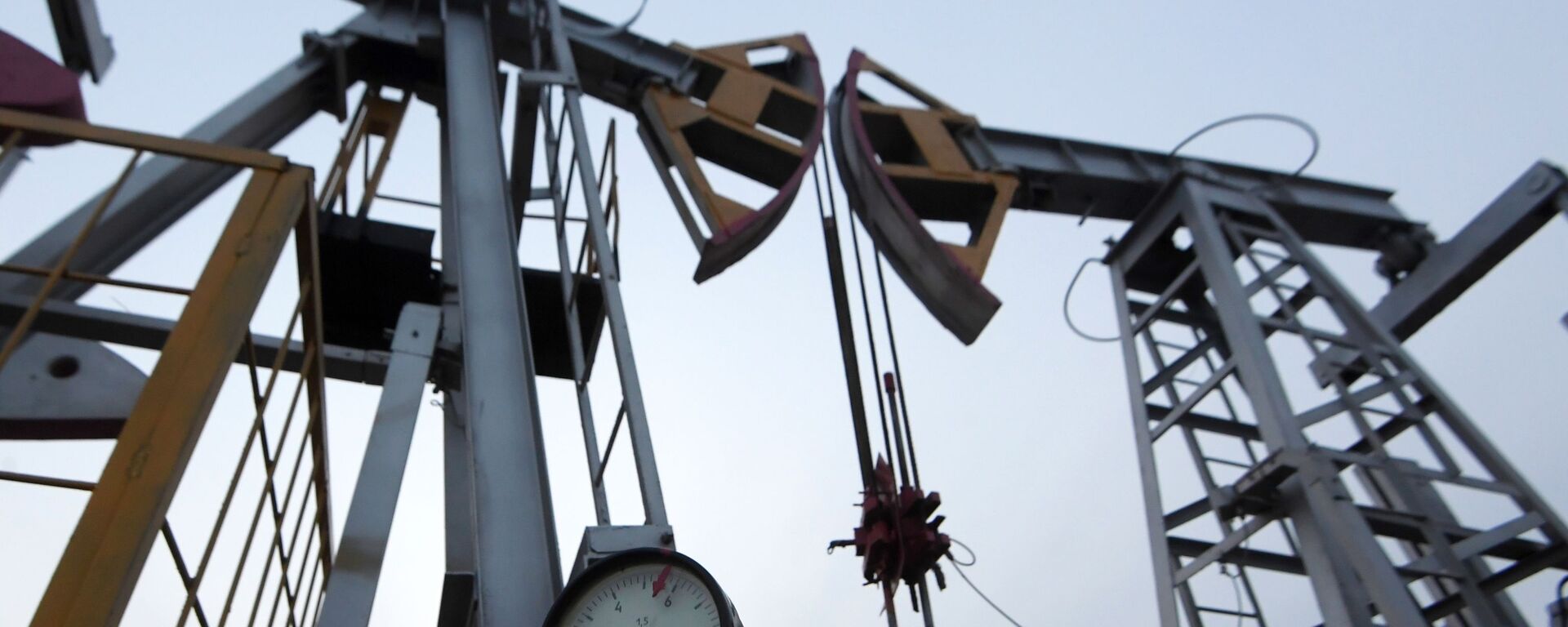https://sputnikglobe.com/20220401/free-run-us-enjoyed-since-ussrs-collapse-maybe-in-for-change-kashmiri-politician-naeem-akhtar-says-1094396505.html
Free Run US Enjoyed Since USSR's Collapse Maybe in For Change, Kashmiri Politician Naeem Akhtar Says
Free Run US Enjoyed Since USSR's Collapse Maybe in For Change, Kashmiri Politician Naeem Akhtar Says
Sputnik International
On 24 February, Russian President Vladimir Putin announced the launch of a special military operation in Ukraine to demilitarise and de-Nazify the country... 01.04.2022, Sputnik International
2022-04-01T20:25+0000
2022-04-01T20:25+0000
2022-12-10T11:42+0000
jammu
kashmir
politics
https://cdn1.img.sputnikglobe.com/img/07e5/01/09/1081711685_0:160:3073:1888_1920x0_80_0_0_a8d8c109f6b0d0bb868c28e9d4eb5b3e.jpg
The “free run the US enjoyed” since the Soviet Union's collapse might be in for a change in the aftermath of Russia's special military operation in Ukraine, senior Kashmiri politician Naeem Akhtar of Peoples Democratic Party (PDP) has told Sputnik in an interview.Akhtar, a former cabinet minister in the erstwhile Jammu and Kashmir state government, has also suggested that the neutral stance, which many South Asian countries including India have maintained during the Russian operation, should ideally translate into the creation of an independent South Asian bloc, with India at the helm.Akhtar also believes that as a result of the Russian military operation, Russia and China, or even both can take centre stage in the changing world order either as allies or rivals in a single bloc.He explained that the US and its allies in Europe were now seeing a threat from this changing global order and that “Ukraine is a casualty of that possibly because of the policies of Mr. Zelensky.”“Lots of things will depend on how things will shape up, first in Ukraine and then inside Russia,” Akhtar told Sputnik.Talking about South Asian countries' decision to abstain from voting against Russia at the United Nations, Akhtar said: “That is a contradiction and an irony because in this most crucial current affair, a global strategic affair, South Asian countries have almost taken a similar stand."“We thought Mr. [Narendra] Modi would lead South Asia out of this constant bickering. And with his power and appeal, Pakistan, Bangladesh, India, Nepal and all other countries, smaller nations would go together and become a strong economic bloc where problems like Kashmir get resolved and the two countries, India and Pakistan, would be with seamless borders. That was the idea of our party (PDP) when we made an alliance with the BJP. But unfortunately that did not happen,” said Akhtar.“I think the failure of our leadership to assume the natural leadership role of SAARC (South Asian Association for Regional Cooperation) is perhaps a let-down,” he added.He further said had India focused more on external realities instead of internal ones, Prime Minister Narendra Modi would have had the potential to lead South Asia as an independent bloc.The veteran politician stressed the need for Indo-Pakistan talks irrespective of the current instability in Islamabad that has emerged due to a no-confidence motion the Pakistani opposition parties are trying to move against Pakistani Prime Minister Imran Khan.“Instability is endemic in Pakistan, whosoever you have there. But the real institution that is keeping them together and taking decisions, or influencing decisions is the army," he said, praising the ceasefire between Delhi and Islamabad that is being respected for over a year now."It is better for Indian leadership to help Pakistan stabilise politically, so they are not sucked up and more pushed up into the lap of China which is not good for this country,” said Akhtar.
https://sputnikglobe.com/20220401/putting-my-countrys-interests-first-india-buying-discounted-oil-from-russia---finance-minister-1094399628.html
kashmir
Sputnik International
feedback@sputniknews.com
+74956456601
MIA „Rossiya Segodnya“
2022
Azaan Javaid
https://cdn1.img.sputnikglobe.com/img/07e6/03/19/1094183852_0:0:1080:1080_100x100_80_0_0_1fd4d8740a02742b3f72f82306742213.jpg
Azaan Javaid
https://cdn1.img.sputnikglobe.com/img/07e6/03/19/1094183852_0:0:1080:1080_100x100_80_0_0_1fd4d8740a02742b3f72f82306742213.jpg
News
en_EN
Sputnik International
feedback@sputniknews.com
+74956456601
MIA „Rossiya Segodnya“
Sputnik International
feedback@sputniknews.com
+74956456601
MIA „Rossiya Segodnya“
Azaan Javaid
https://cdn1.img.sputnikglobe.com/img/07e6/03/19/1094183852_0:0:1080:1080_100x100_80_0_0_1fd4d8740a02742b3f72f82306742213.jpg
jammu, kashmir, politics
Free Run US Enjoyed Since USSR's Collapse Maybe in For Change, Kashmiri Politician Naeem Akhtar Says
20:25 GMT 01.04.2022 (Updated: 11:42 GMT 10.12.2022) On 24 February, Russian President Vladimir Putin announced the launch of a special military operation in Ukraine to demilitarise and de-Nazify the country. India has so far abstained from voting in the United Nations Security Council (UNSC) twice and once in the UN General Assembly over resolutions regarding the Russian op.
The “free run the US enjoyed” since the
Soviet Union's collapse might be in for a change in the aftermath of Russia's special military operation in Ukraine, senior Kashmiri politician Naeem Akhtar of Peoples Democratic Party (PDP) has told Sputnik in an interview.
Akhtar, a former cabinet minister in the erstwhile Jammu and Kashmir state government, has also suggested that the neutral stance, which many South Asian countries including India have maintained during the Russian operation, should ideally translate into the creation of an independent South Asian bloc, with India at the helm.
"It is back to the old days when we used to have two blocs. I think the Russian special operation could shape up into that," said Akhtar, who was part of the PDP-Bharatiya Janata Party (BJP) alliance government between 2015 and 2018. "Ultimately, Ukraine is only a battlefield where many things will be decided."
Akhtar also believes that as a result of the Russian military operation, Russia and China, or even both can take centre stage in the changing world order either as allies or rivals in a single bloc.
He explained that the US and its allies in Europe were now seeing a threat from this changing global order and that “Ukraine is a casualty of that possibly because of the policies of Mr. Zelensky.”
“Lots of things will depend on how things will shape up, first in Ukraine and then inside Russia,” Akhtar told Sputnik.
Talking about South Asian countries' decision to abstain from voting against Russia at the United Nations, Akhtar said: “That is a contradiction and an irony because in this most crucial current affair, a global strategic affair, South Asian countries have almost taken a similar stand."
"They have not been part of any bloc. But unfortunately, they themselves are unable to sort out their matters to become a real bloc, a real power,” he added.
“We thought Mr. [Narendra] Modi would lead South Asia out of this constant bickering. And with his power and appeal, Pakistan, Bangladesh, India, Nepal and all other countries, smaller nations would go together and become a strong economic bloc where problems like Kashmir get resolved and the two countries, India and Pakistan, would be with seamless borders. That was the idea of our party (PDP) when we made an alliance with the BJP. But unfortunately that did not happen,” said Akhtar.
“I think the failure of our leadership to assume the natural leadership role of SAARC (South Asian Association for Regional Cooperation) is perhaps a let-down,” he added.
He further said had India focused more on external realities instead of internal ones, Prime Minister Narendra Modi would have had the potential to lead South Asia as an independent bloc.
The veteran politician stressed the need for Indo-Pakistan talks irrespective of the current instability in Islamabad that has emerged due to a no-confidence motion the Pakistani opposition parties are trying to move against Pakistani Prime Minister Imran Khan.
“Instability is endemic in Pakistan, whosoever you have there. But the real institution that is keeping them together and taking decisions, or influencing decisions is the army," he said, praising the ceasefire between Delhi and Islamabad that is being respected for over a year now.
"It is better for Indian leadership to help Pakistan stabilise politically, so they are not sucked up and more pushed up into the lap of China which is not good for this country,” said Akhtar.



